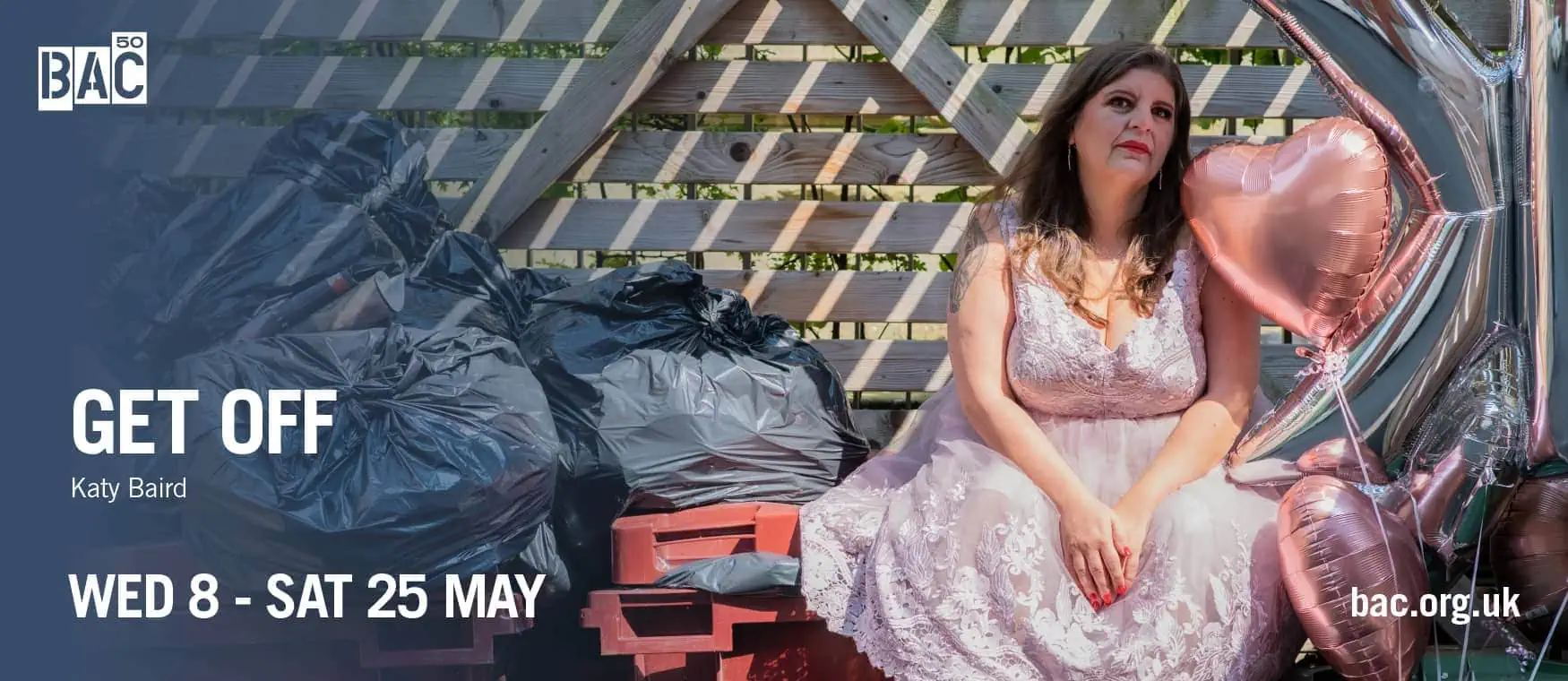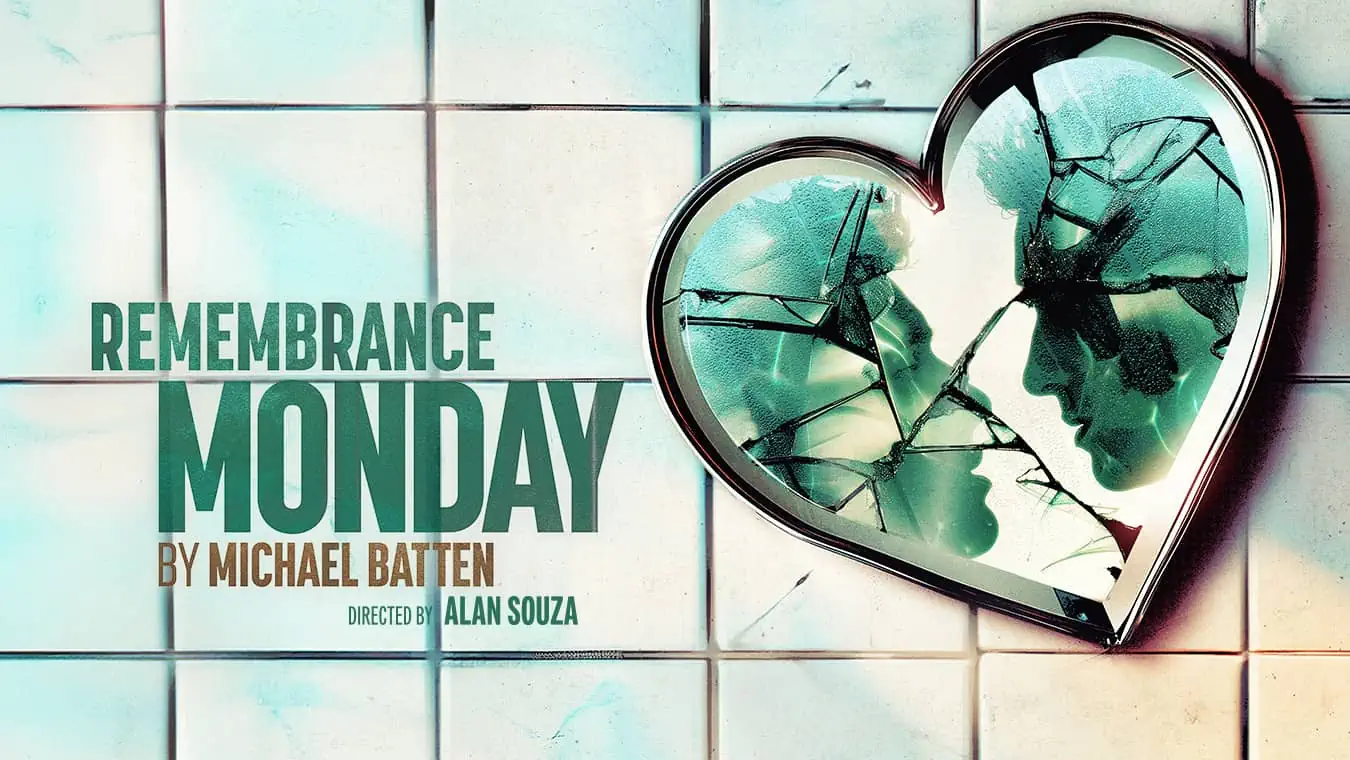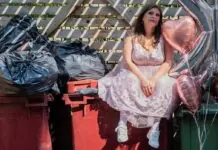Queer as Folk, written by Russell T Davies, helped change the media’s perception of gay men. When it hit the screens in 1999 Parliament was debating equalising the age of consent. (Yes, it wasn’t that long ago that we were treated different to straight people in that regard.) This week, sixteen years later and after huge advances in gay rights, writer Russell T Davies returns to Channel 4 with Cucumber and Banana, two new dramas that pull tight focus on the modern lives of gay men in contemporary Britain. And once more they feature razor-sharp writing, brilliantly observed characters and devilish comedy…

People still refer to Queer As Folk today as such a seminal programme. Why was the time right for you to return to gay drama?
I’ve been planning to write this much earlier, maybe five or six years after Queer as Folk. Then Dr Who came completely out of the blue and lasted much longer than I ever thought and became this ridiculous, mad roller-coaster that never stopped. The longer time has passed, the more time I’ve had to think about it, the more time for [lead character] Henry to settle into my head and invent new stuff. I’m surprised I left this material alone for so long.
There’s terrific interaction between the young and the old characters in the series…
It was a natural thing to do. You’re looking at a culture that’s very youth based. Gay magazines, gay literature and conversations inevitably revolve around youth. I don’t know why that is. Maybe because for men of my generation at least part of their youth was spent in the closet, so we look back with a certain amount of fascination and regret, and joy also, at who we were. We do look at young men and consider how different their lives are, for good and for bad. Plus, there’s a whole other argument that we live in a popular culture that is quite sexually-charged and therefore that puts beauty, prettiness, ageing at the forefront of the agenda. That’s just part of the world we live in.
I agree. They aren’t necessarily exclusive gay issues. Ageism is also a problem for older women…
I think they’re problems of the West. Sometimes we see these things as problems, but they’re just life. You will hear gay men of my age saying we’re not welcome in the clubs, there’s no culture for us and we’re too old to go clubbing.
But at the same time, the gay scene is the kind of place where if you saw an older guy or an older woman even in a bar or club you wouldn’t think twice, because we are more accepting of diversity and going against the grain.
Absolutely. That’s very true actually, good point. The inclusiveness to the gay society is about slightly escaping the straight world. That’s my favourite thing, to stand there in a club on Canal Street and watch those people who have been bank clerks or teachers all week – and a lot of them are still in the closet in some shape or form – and they go out on a Friday night and take their top off and dance there until four in the morning. There’s something beautiful about that, and it’s not limited by age. But it’s not particularly a gay thing, it’s the tensions between men and boys, women and girls, and society in the West really.
You mentioned Henry before. If I’m honest, I didn’t expect a middle-aged man to be such a perfectly suitable focal point of a new gay drama.
Yes, he’s the engine of this entire thing. It’s a great cast, and wonderful characters but it’s all about Henry all the way through to the very last line of the very last episode.
The characters are written so well that you don’t see them as stereotypes, they’re just people finding their way through life. I thought Henry and Lance could easily be a straight couple facing the same problems of a comfortable, unexciting relationship that’s trundled along for a decade and lost its passion.
Oh, absolutely, until you get to the very specific gay stuff about Henry’s fear of penetration and the whole thing about erections because it’s the one thing he’s scared of. The series develops into discussing gay shame, gay panic. It’s an area of gay life that’s not spoken about, the stuff we run away from.

I love what Henry says about gay marriage to Lance in that first episode.
At the same time, he’s a crafty bugger. He’s wriggling out of that madly. He’s very good in an argument. He’s like a shrapnel bomb. Everything he says is to get out of that situation with Lance, so don’t believe everything he says.
Is Henry afraid of what his real desires call out for?
Yes, he’s fascinated by sex, obsessed by sex and scared by sex at the same time. Nothing particularly gay about that, I think you’ll find many straight men who share that. That’s why the series was named after erections. It’s not a cheap joke on my part, it’s literally what the drama is about. It’s real, it’s genuinely about the thing we don’t talk about, erections and cock, apart from as a joke.
“It’s just not there. In my head, it’s not an option. Never was. It’s not my fault they went and invented it. I knew when I was ten years old I’m never getting married. It’s never been there.” – Russell T Davies.
Is Henry the gay equivalent of the frustrated housewife?
Well, slightly yes. But at the same time he’s very honest and does things that none of us would ever dream of doing, packing his life up. I describe him as a fire starter, everything’s calm and he just starts the fire.
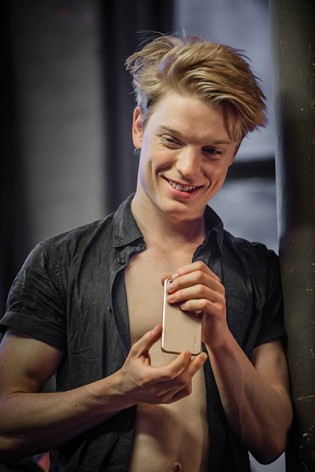
My views are not spectacular in any way. It’s marvellous if you want to be monogamous, but equally honest if you want an open one. I like Henry’s honesty in that he doesn’t sneak off and have affairs. I think Lance is much more complicated in his definition of monogamy and open relationships. Henry talks about people he fancies who he sends texts to and might have lunch with but nothing happens, but it’s like a miniature affair without anything happening. And it’s very true of life, you might have people on your phone that you give two kisses to instead of one. The shades of relationships are infinite. It doesn’t mean affairs. It’s nothing to do with monogamy or polygamy, it’s to do with existing in the world in which there’s more than one person you fancy. I love my boyfriend deeply and I’m so glad we can say to each other when we fancy other people, like when we’re watching television and we say, ‘Oh he’s gorgeous, isn’t he?’ I’ve seen couples that can’t do that.
Does the concept of gay marriage appeal to you?
I think it’s marvellous that it exists. I had a civil partnership with my boyfriend. I’m not particularly interested in turning that into a marriage, because it doesn’t mean much to me. I think it’s excellent that the battle has been won. The principle is perfect, but it’s like Henry in Cucumber who never grew up with marriage as an option. It’s absolutely admirable that it’s been won, and it’s an evolution in our society, but not one that I’ll be dancing in the street for.
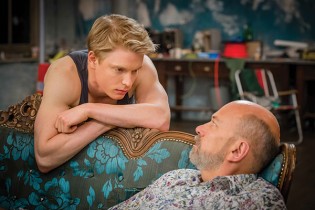
There are slow reveals of character with him. Freddie is bisexual to start with, he’s out to his parents, he’s enormously confident sexually. But perhaps too confident. In episode three there’s a reveal about his past, about the first man he had sex with, how that happened. They’re not big twists like a soap opera, it’s the finding out of people’s lives; the smaller these details are, the better. With Freddie there’s a boy that’s out and confident. Society would tell us that men like that don’t have problems, but that’s not true of anyone, everyone has problems. I want to look at someone whose life should be perfect, but isn’t. He creates problems for himself, is haunted by things he should have done. He’s slightly fallen off the shelf, should have been to university, he got too drunk, he’s in a shit job and caught in the zero hours contract world. He’s not young-young, he’s not 16, he’s 24, so it’s that generation.
I love the idea that Henry crashes into these young guys’ lives…
It’s great. Imagine these two hedonists, and Freddie finds suddenly there’s this fifty year old man living with them. It’s enormously funny. So, it becomes the source of their friendship and it’s not a simple friendship, it’s one-step forward two steps back.
• Cucumber is on Channel 4.
• Banana is on E4.


